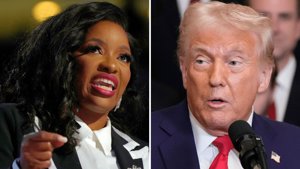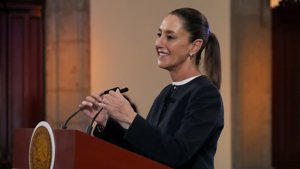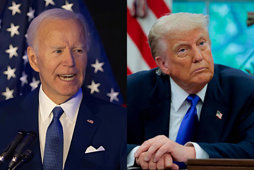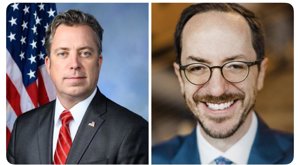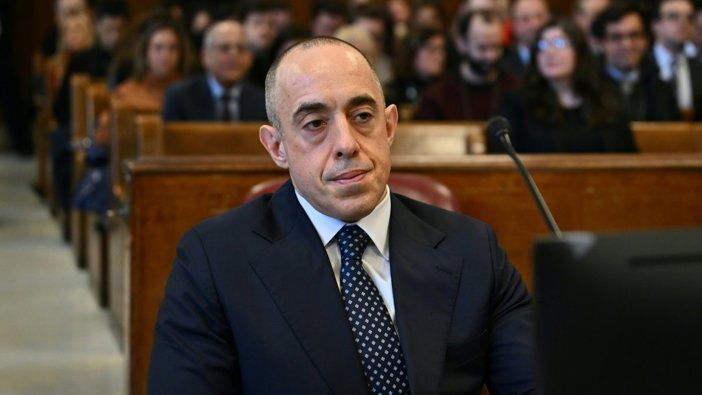
Trump Eyes Emil Bove for Appeals Court
President Trump is reportedly considering Justice Department official and his former defense attorney, Emil Bove, for a lifetime appointment to a U.S. appeals court, a move stirring debate given Bove's controversial tenure and aggressive tactics.
President Donald Trump is evaluating Emil Bove, a high-ranking Justice Department official and his former defense attorney, for a significant vacancy on the U.S. Court of Appeals for the Third Circuit. This court holds jurisdiction over federal cases in Pennsylvania, New Jersey, and Delaware. The consideration, still in its early stages according to sources familiar with the matter, comes as President Trump continues to voice criticism against judges he deems "activist" for obstructing his policy agenda. With two current vacancies on the Third Circuit, the possibility of Bove's nomination increases.
Should Bove, 44, be nominated and subsequently confirmed by the Senate, he would secure a lifetime appointment to the federal bench, a position of considerable influence in the American legal system. However, Bove is not the sole individual under consideration for this prestigious role. His potential nomination is already signaling a contentious confirmation battle, particularly given his past actions and close ties to the President.
Bove's Controversial Record and DOJ Tenure
Emil Bove's career has been marked by a reputation for being a fierce, loyal, and, at times, aggressive leader. Before his current role at the Justice Department, Bove served nearly a decade as a U.S. prosecutor for the Southern District of New York, a high-profile office known for handling complex financial and criminal cases. Notably, he also represented President Trump in two criminal trials that followed his first term in the White House, underscoring his direct connection to the President.
Since joining the Trump administration's Justice Department, Bove has been identified as a key figure behind several of its most contentious policies and directives. These actions have reportedly led to significant internal dissent, with some officials choosing to resign rather than implement his orders. One such instance involved a memo Bove issued shortly after taking office, which threatened state and city officials with criminal charges or civil penalties if they did not fully comply with the administration's stringent immigration enforcement measures. "Federal law prohibits state and local actors from resisting, obstructing and otherwise failing to comply with lawful immigration-related commands," Bove stated in the memo, signaling a hardline approach.
Another widely publicized incident attributed to Bove was the order for federal prosecutors in the Southern District of New York to file a motion to dismiss charges against New York City Mayor Eric Adams. This directive caused a significant stir within the Justice Department, culminating in a series of resignations. Among those who departed was Danielle Sassoon, the acting U.S. Attorney for the section, who reportedly left rather than drop the case. Ultimately, Bove, alongside Edward Sullivan from the Justice Department's Public Integrity Section, personally signed the motion to dismiss.
Scrutiny Over FBI Investigations
Further controversy surrounds Bove's alleged involvement in an exhaustive questionnaire distributed to FBI agents concerning their roles in the investigations of the January 6th events. The questionnaire reportedly delved into details such as agents' participation in grand jury subpoenas, their collaboration with other FBI field offices, and their specific roles as case agents. This probe has raised alarms among former Justice Department officials, who fear it could create a chilling effect on the FBI's operational independence and investigative work across its more than 52 field offices.
These concerns were amplified by an order, reportedly from Bove while he was acting Deputy Attorney General, to terminate the entire FBI senior leadership team and the assistant director in charge of the Washington Field Office. Such actions have fueled accusations from Democrats that President Trump is attempting to install loyalists in key positions within the DOJ and FBI, potentially undermining the impartiality of these critical institutions.
Given this backdrop, Emil Bove would likely face a highly uncertain and challenging path to confirmation if formally nominated. The White House and the Justice Department have not yet issued public comments on the potential nomination. The developing situation will be closely watched as it touches upon sensitive issues of judicial independence, executive influence, and the separation of powers. The outcome could have lasting implications for the federal judiciary and the public's trust in its institutions.

